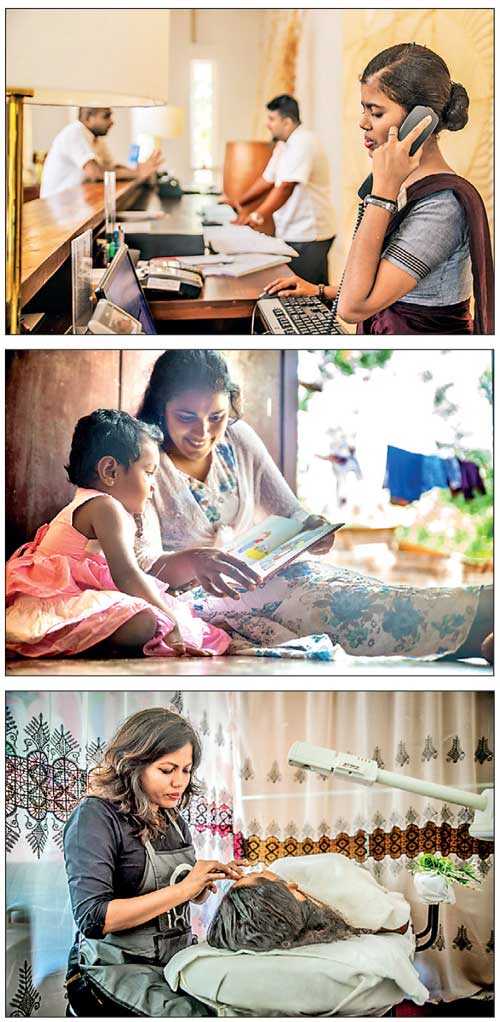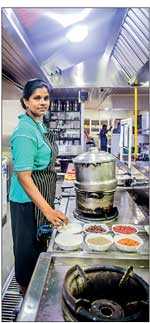Friday Feb 27, 2026
Friday Feb 27, 2026
Tuesday, 5 May 2020 00:49 - - {{hitsCtrl.values.hits}}
Tourism is one of the largest socioeconomic sectors and income generators in Sri Lanka with a 12.5% contribution towards the country’s GDP in 2018. The industry provides a comparative advantage for women with more benefits than other sectors of the economy, with greater emphasis on flexible work options, increased entrepreneurship that does not require heavy start-up financing and opportunities through the sharing economy through online platforms such as Airbnb, Yoho Bed and Booking.com, etc.
Despite these opportunities, there are fewer women within the industry, especially in areas such as Polonnaruwa and the East. In the rare occasion women are involved they are mostly found in the low skilled, low pay and precarious quartile. Mobility, cultural and security concerns, have created a gender gap in the region and this prevents women from being employed the tourism businesses.
In addressing this gap, the Skills for Inclusive Growth (S4IG) program funded by the Australian Government’s Aid program in partnership with the Ministry of Skills Development, Employment and Labour Relations adopts innovative approaches and models for the inclusion and empowerment of women in tourism recovery. Existing challenges at regional, contextual and at individual levels are identified and addressed through targeted interventions to ensure opportunities for women and persons with disabilities across all skill development projects under S4IG’s flagship initiative Gateway to the East.
These interventions are implemented through the Twin-Track Approach, S4IG’s key strategy to ensure full gender inclusion. This two-dimensional strategy involves a mainstream approach to ensure active female participation through modifications and adjustments such as flexible training hours, transportation facilities, and child-care support during training. This has been achieved through piloting flexible training modalities to build capacity and address skill gaps while also consulting with agencies to support women in skills and employment planning.
The targeted approach of this strategy ensures empowerment and reduces inequalities between men and women. It also redresses historical imbalances through counselling for increased self-confidence, securing family support, provisioning of soft skills, initiating projects to challenge stereotypes and networking for women-led organisations. S4IG’s creation and promotion of role models within the tourism industry has been key to inspiring women to challenge their traditional career pathways.
S4IG’s training models ensure that trained and mentored women are employed in the sector to safeguard and implement policies and regulations that are gender-sensitive. Within these models, S4IG also champions the inclusion for persons with disabilities. All activities promote female labour force participation in the tourism sector, alongside opportunities for advancement within the working districts of Ampara, Batticaloa, Polonnaruwa and Trincomalee. 
A distinctive feature of S4IG’s strategies lies in its efforts to encourage and facilitate women in non-traditional roles, that enable change. Supreme chef, women surf instructors, female tour guides, travel photographers and videographers are challenging stereotypes of work in the tourism sector that S4IG continues to promote and build.
The potential for a gender-equal tourism industry is promising, but to scale these efforts recognition within the higher levels such as the National Tourism Strategy is required. To communicate the importance of gender inclusion and women empowerment in 2020, S4IG will continue to showcase and celebrate men and women who have worked to achieve inclusion.
The sustainability of the interventions by S4IG remains in its holistic view. The program-wide gender tag process indicates to project teams when and how gender considerations need to be incorporated into the project design. These guidelines will be of use to those involved in the projects as well as those designing other kinds of tourism projects with a gender component.